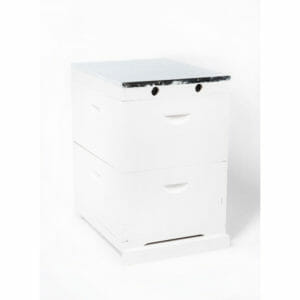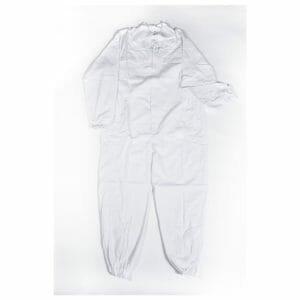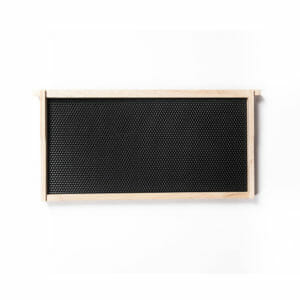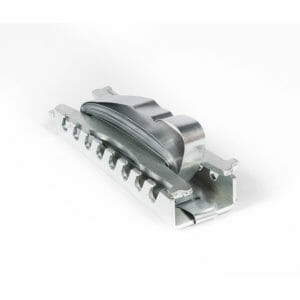Autumn is almost here and it is time to make some changes. Before harvesting any honey this time of the season, make sure that you:
- Understand the nectar and pollen supply in your area
- Know the strength of your colony
- Aware of your queen’s performance
The aim of autumn management is to ensure that your colony remains strong and healthy throughout winter, survive the colder months and build up quickly in the spring. To survive, they must be healthy and disease-free and well-fed. Fewer inspections are recommended during the autumn to avoid robber bees. As food resource flow reduces, more invaders will seek wrath on your beehive, so be careful and plan well.
Why Downsize?
Downsizing the size of the beehive will cluster the bees together, ensuring they all get the warmth they need for winter. Your queen’s laying performance will decline as it gets cooler. This will give you the opportunity to reduce the space into 1 brood box and 1 box for honey stores. There will be chances of empty brood frames which you can easily remove.
What to Check:
- Evaluate their honey stores. If any of them has short supply, they will need more frames of honey and possibly feeding of pollen.
- Inspect for pests and diseases. Be alert on any pests such as wax moths and SHB’s. Early diagnosis can be very significant and early treatment, especially before winter, will be essential for your bees to fight them off. Take corrective measures if necessary, to prevent any more spreading.
- Reduce entrances. Cooler months also means more pests. It does not just stop wasps or robber bees, but also mice and other animals who would want to seek refuge.
- Check your bottom board if there are any moulds or wet ones. Otherwise, replace them with clean and dry ones.
Best Practices
- Keep at least 8 – 12 frames of honey stores. This will help avoid your colony from dying from starvation.
- Install a robbing screen. Is better to be prepared than not! Secure all possible entrances such as holes on the lids and on the sides of your boxes. This will act as a fence against robber bees.
- Remove your queen excluders. You wouldn’t want your queen to be left behind a cluster where they keep each other warm.
What to expect:
- Expect drones being removed. As winter approaches, bees can’t afford to have an extra mouth to feed. They will then stop providing food for the drones and eventually kick them out, leaving them to die.
- The decline in population and honey. This is normal! Cooler months mean less brood and less foraging.
If you are unsure of anything, don’t hesitate to ask expert beekeepers or join a local beekeeping club. Personally, I keep up through Facebook beekeeping groups and it’s easy to just ask a question and get a lot of answers in a minute! This season is particularly crucial to your bees’ survival through winter. When they do, they get busy and buzzing in spring.
Goodluck! 🙂




